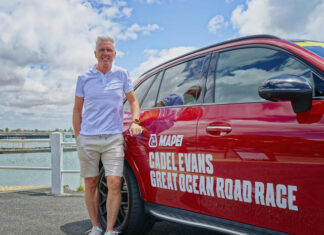John Van Klaveren
IT WAS while teaching Aboriginal children at a remote school on Northern Territory’s Elcho Island that Dr Sandra Lea-Wood first became interested in differences.
She was forced to apply for the remote position after graduating as a teacher because she couldn’t find a local place due to an underlying medical condition.
Later Sandra was living in England and working at Ipswich Special School when she began noticing that children with high intellectual potential were presenting with learning difficulties as well.
“Looking back, those two periods in my life fired my interest in special needs education,” Sandra reminisces.
“I believe that a lot of kids are a lot happier because I was able to help them find their place in the world.”
Today Sandra’s passion for children with what she irreverently calls the “Lisa Simpson effect” is still as strong.
“Lisa Simpson is a basic yet real example of a CHIP kid,” Sandra agreed. “She has her particular needs educationally and socially.”
Sandra has managed CHIP Geelong, a centre for children of high intellectual potential, for 15 years. She backs up her expertise with a PhD in Special Education (Gifted) from University of Melbourne.
“There’s not always a lot of awareness that kids with high potential, or what we often call gifted children, have significant issues to face as well,” Sandra explains.
“My own understanding of that has grown into a passion to help high potential children find their place in the world.”
Sandra said children with high potential often “dumbed themselves down” because they didn’t want to be called a nerd or teacher’s pet.
“Kids can hide their intellect and because they’re not being true to themselves they can be very unhappy,” she notes.
“Sometimes it can surface as disciplinary problems in the middle secondary school years or I often see it in year 10 when students will drop out because of disillusionment with the school system.”
Sandra works with a variety of students across a number of Geelong region schools, providing screening and testing of student cohorts to discover the CHIP kids.
“Every school has high potential kids”.
“Early intervention is important because we can then ensure kids are allowed to realise as much of their potential as possible,” she says.
Although it has taken time to convince the teaching profession of the needs of CHIP kids, Sandra says some schools are now providing specific programs for them.
There is a worldwide trend of children of high potential facing specific learning issues, Sandra explains.
The trend has taken her to New York where she has lectured teachers on the issues surrounding CHIP kids.
CHIP Centre Geelong has a parent support group and runs regular activities – a robotics workshop and a chess workshop are on soon.
“The workshops enable high potential kids to meet each other and form a peer group as well as stretching their intellects,” Sandra says.
“Often kids will let themselves coast and it doesn’t help them. They need to have the intellectual equivalent of an exercise high.”
CHIP Centre Geelong is a not-for-profit facility funded solely on a fee-for-service arrangement.
“I do some pro bono work because high potential is no respecter of socio-economic boundaries,” Sandra points out.
When she’s not assessing CHIP kids, Sandra also does voluntary work with Footscray Sudanese Welfare Centre.
She also bred and showed German shepherd dogs for 20 years.
Sandra comes full circle next week when she returns to Elcho Island, in northern Australia, to help its school celebrate its 40th anniversary.
LOCAL LEGEND – Gift of learning
Digital Edition
Subscribe
Get an all ACCESS PASS to the News and your Digital Edition with an online subscription
World-class cycling returns
Thousands of cyclists will ride across Geelong, the Bellarine and Surf Coast roads next week as The Cadel Evans Great Ocean Road Race returns....








